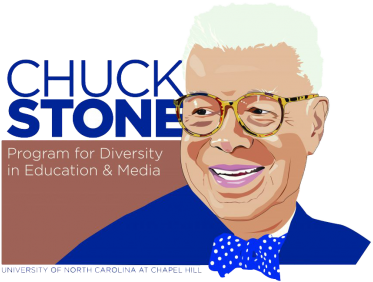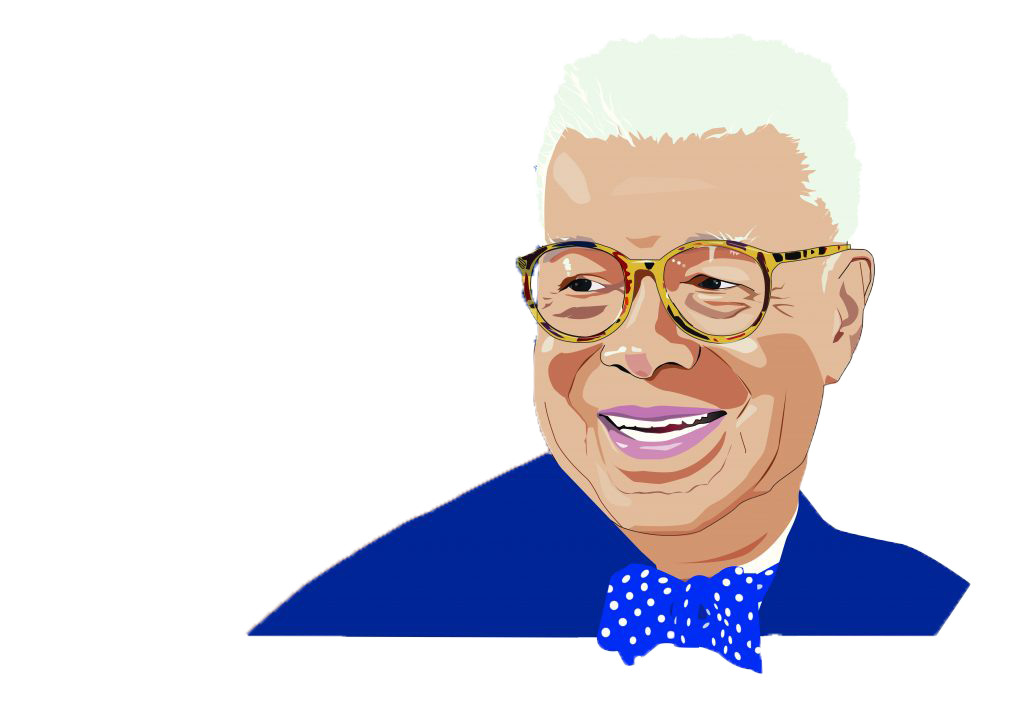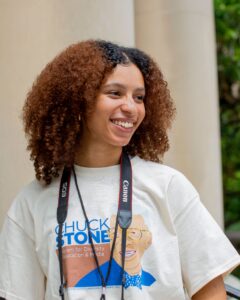Ava Wharton
Keeping the public informed
By Victoria Alcindor
Ava Wharton wanted to straighten her naturally curly hair to fit-in with her White and Asian friends and classmates. Fresh out of Long Island, New York, at 7 years old, Wharton attended Green Hope Elementary in Cary, North Carolina.
Now, at almost 17 years old, she expresses her self-acceptance through wearing her natural curls proudly. Many women of color or women with more coarse and curly hair go through the same thing as a child.
“I just wanted straight hair like my friends,” she said. “I never really had an understanding of how damaging that was.”
In Gabreielle Kwarteng’s story, “Why I don’t refer to my hair as ‘Dreadlocks,’” a July 2020 Vogue editorial, she expressed a very similar experience to Wharton: “When I was about nine years old, I asked my mom if I could straighten my thick natural hair with a perm… Unbeknownst to my young mind, I was making my first attempt to conform to white mainstream society,” the editorial said.
Experiences like these are what set Wharton on a path to pursue storytelling and activism for minorities and girls, through the Beautiful Project and student journalism.
Wharton entered the Beautiful Project organization as an apprentice during her junior year at Enole High. This organization focuses on the art of black girl expression. It is no secret that Black culture has been ridiculed and oppressed throughout history. The Beautiful Project strives to “advance the representational justice and wellness of black women and girls.”
During Wharton’s time in the program, she has expressed gaining a sense of confidence and an awareness that her voice is just as valid as everyone else’s. “It was a space where I could voice my opinions and I always felt comfortable.”
The program does not “magically solve societal injustices,” she said, but is a great opportunity to become educated on the subconscious effects society has in black female culture. Wharton has been invited to return as a mentor during her senior year. “I will be there to give a sense of guidance and support to the new apprentices,” she said.
In addition to her work with the Beautiful Project, Wharton plans continues to tackle the problematic beauty and cultural outlooks at school. She is a part of her school’s Student Council, Equity Team, Black Student Union and Political Literacy and Activism Program.
“There’s so much beauty to be experienced,” she said. “I really wanted to kind of chase that beauty, and I said the only way to do that is to help other people see it and then to also keep fighting for it and calling out ways where institutionally, individually, we’re kind of silencing that beauty.”


